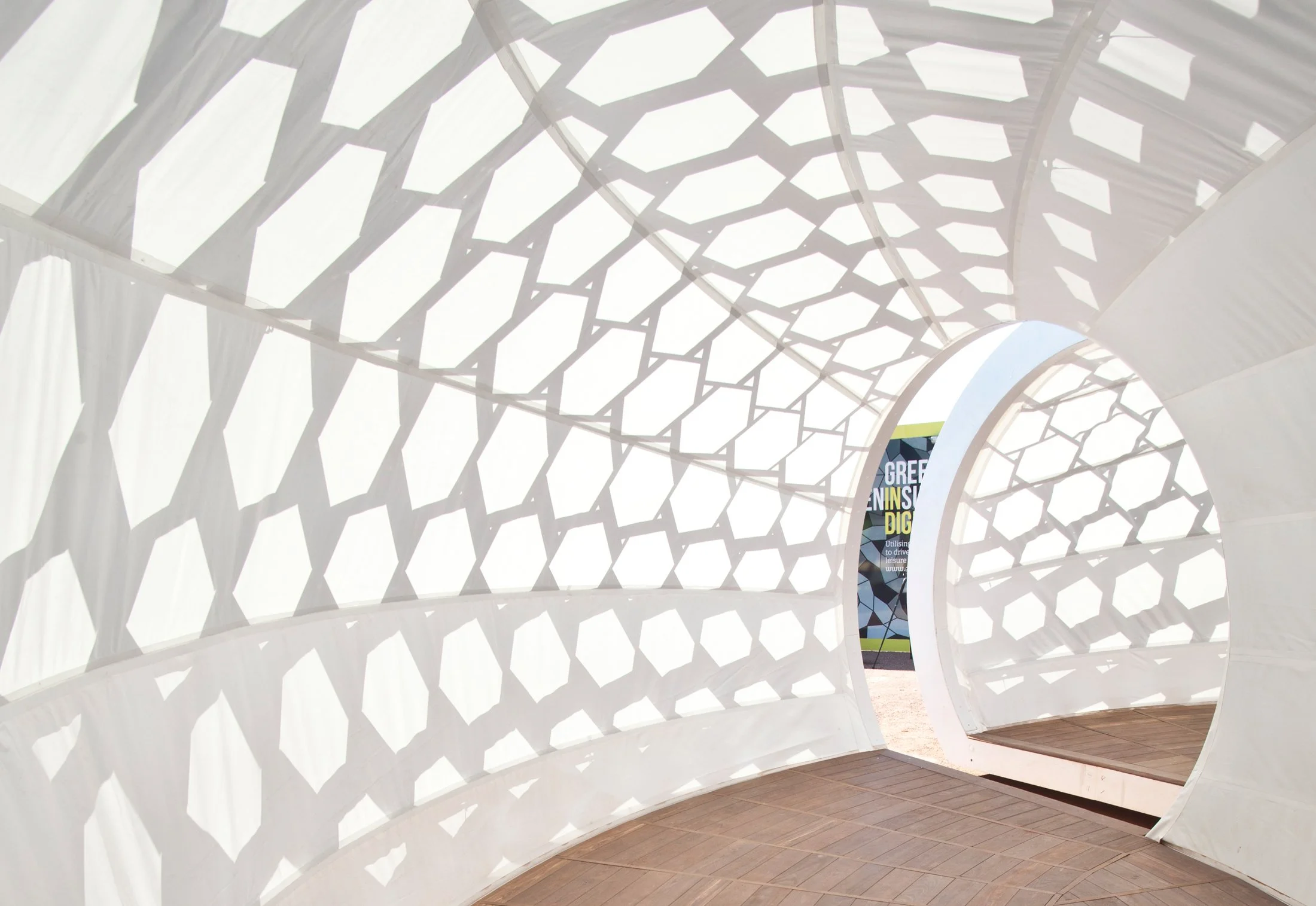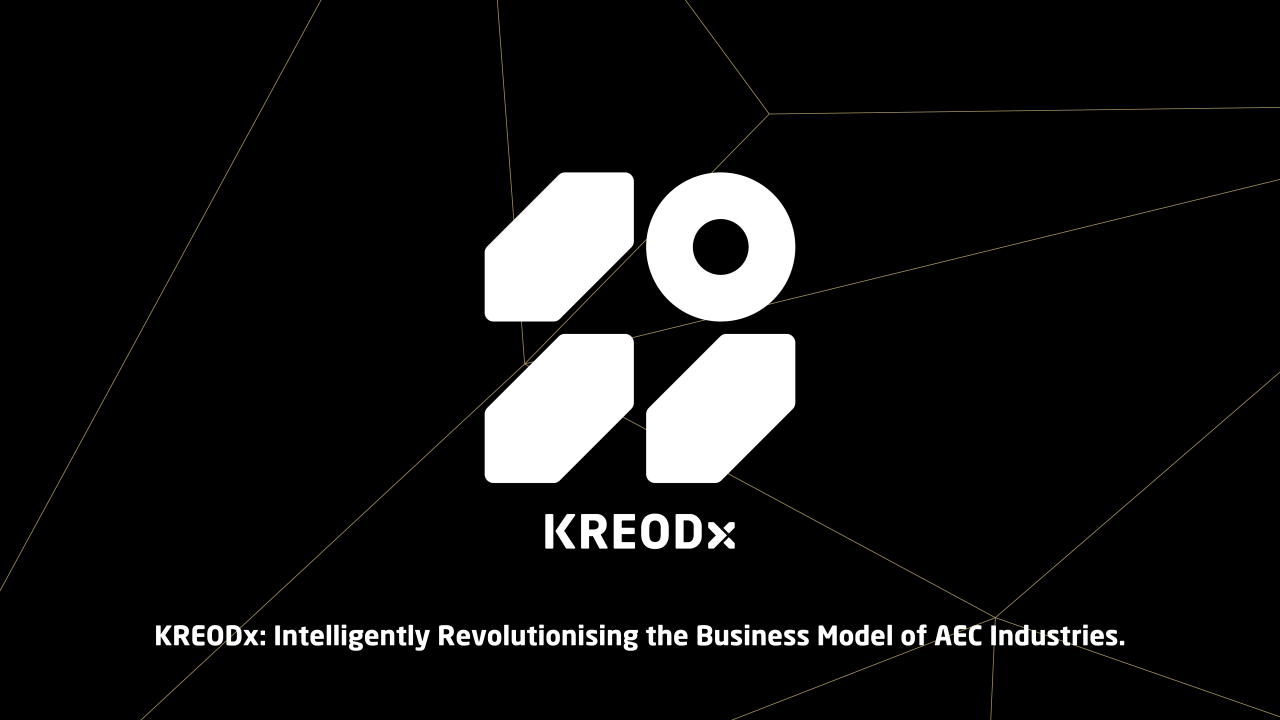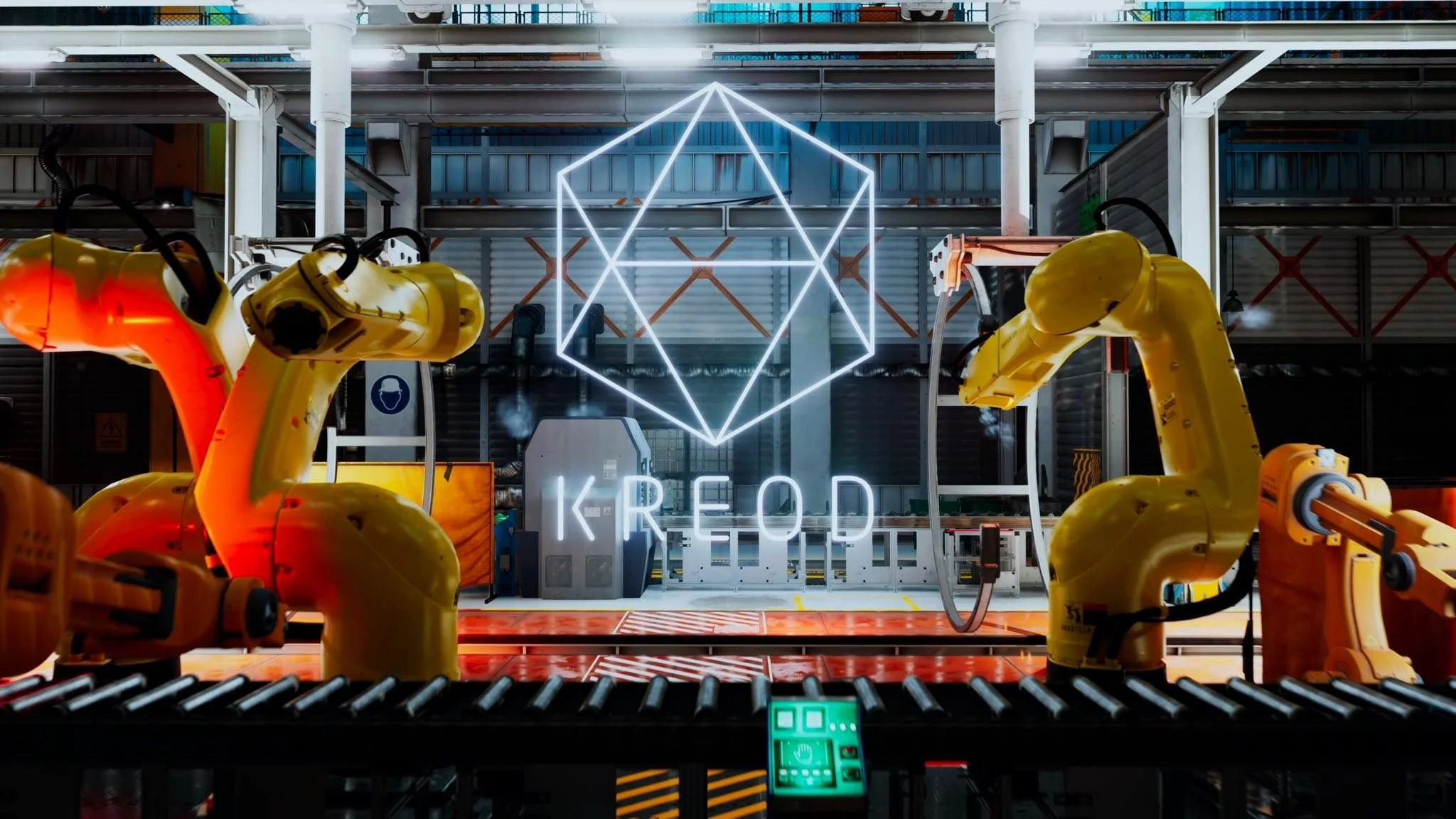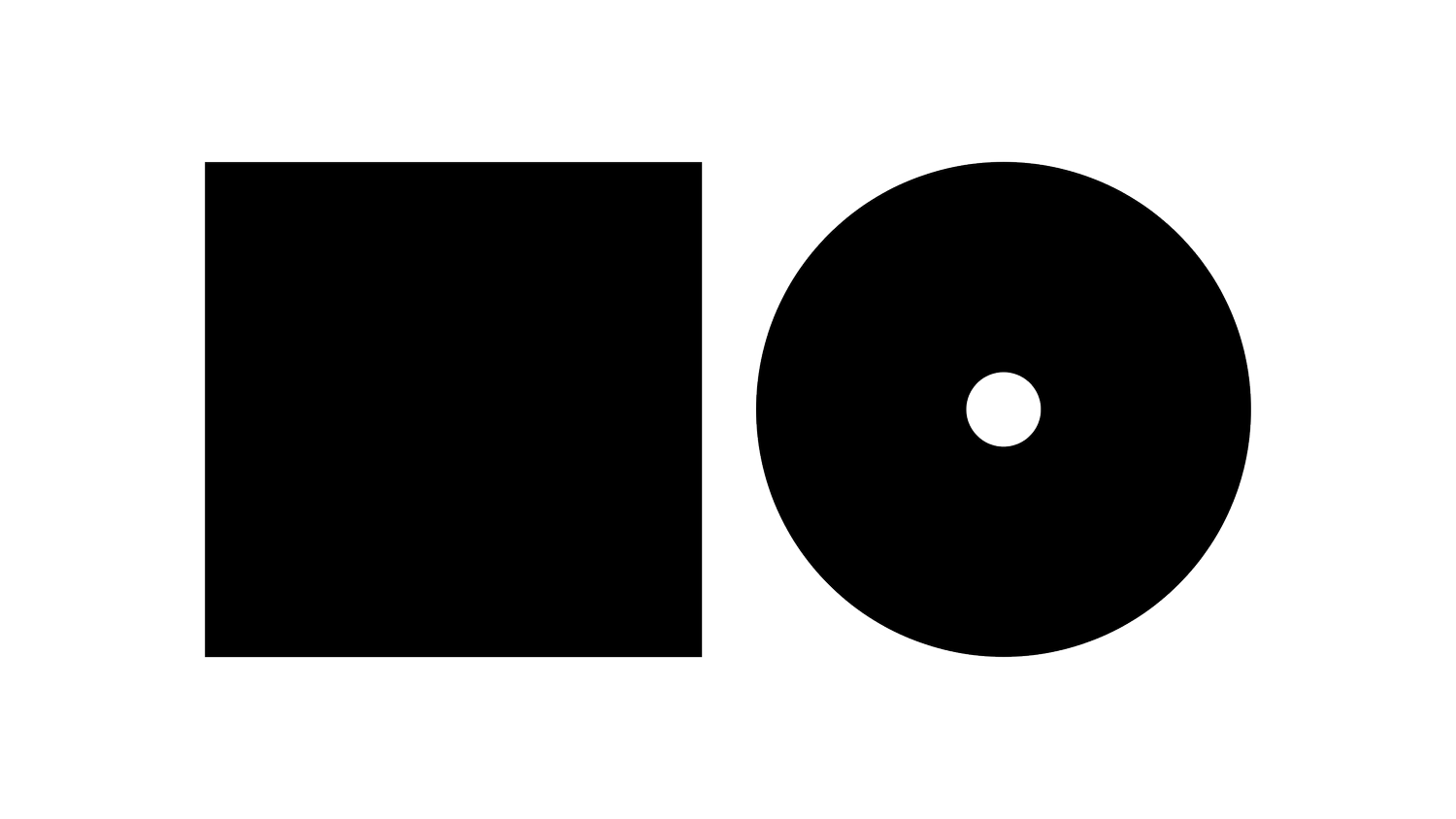 Image 1 of 10
Image 1 of 10

 Image 2 of 10
Image 2 of 10

 Image 3 of 10
Image 3 of 10

 Image 4 of 10
Image 4 of 10

 Image 5 of 10
Image 5 of 10

 Image 6 of 10
Image 6 of 10

 Image 7 of 10
Image 7 of 10

 Image 8 of 10
Image 8 of 10

 Image 9 of 10
Image 9 of 10

 Image 10 of 10
Image 10 of 10











Kreod is fabricating complex, resource-efficient structures with precision
KREOD, founded by Chun Qing Li, is a pioneering transdisciplinary design and innovation company that aims to revolutionise the Architecture, Engineering, and Construction (AEC) industry. Established in 2012, KREOD integrates advanced technology, performance, and financial viability to create sustainable and innovative architectural solutions. KREODx, a key product, combines Design for Manufacture and Assembly (DfMA) principles with intelligent automation to streamline processes, optimise efficiency, and enhance project outcomes. The primary users of KREODx include architects, engineers, and construction professionals looking to achieve higher precision and productivity in their projects.
Location
Headquarters: London, UK.
Operations: Global operations with projects and collaborations across the USA, Europe, and Asia.
Strategic Reach: Focus on integrating with a network of hardware manufacturers and AEC professionals worldwide.
The Circular Vision
Design Principles: KREODx embodies circular economy principles by promoting efficient use of materials and reducing waste through advanced automation.
Resource Optimization: The software optimises design and manufacturing processes to minimise material usage and energy consumption.
Life Cycle Considerations: KREODx addresses the entire project life cycle, from design to construction, ensuring sustainable practices and minimal waste.
Leveraging for Good: Creators can use KREODx to design and construct buildings with minimal waste, contributing to a more sustainable and circular AEC industry.
Pioneering Solutions
Key Features: AI-powered toolpath generation, real-time feedback, predictive analytics, and comprehensive project management.
Unique Value Proposition: KREODx significantly enhances production efficiency, quality, and scalability, setting it apart in the AEC industry.
The Regenerative Future
Ecosystem Support: KREODx supports regenerative design by enabling the creation of structurally efficient forms that minimise resource use and environmental impact.
Future Development: Continuous R&D efforts focus on enhancing AI algorithms to further improve sustainability and efficiency in construction.
Creative Empowerment: KREODx empowers designers and engineers to create innovative, sustainable solutions that contribute to ecological health and resource renewal.
Ethical Considerations
Data Usage: Ensures data privacy and security, managing the complexity of AI-driven insights while protecting user information.
Bias Mitigation: Implements measures to prevent or address algorithmic bias, ensuring fair and accurate outcomes.
Transparency: Maintains a high level of transparency in AI decision-making processes.
Guardrails: Provides guardrails to prevent misuse of the software and ensure responsible use.
Challenges: Potential challenges include data integration issues and the need for continuous updates to AI models to keep up with evolving sustainability standards.
Fact Sheet
Availability: Available globally through KREOD's subscription model.
RIBA Stages: Useful in RIBA stages 2-5, particularly impactful in concept design, developed design, technical design, and construction.
Circular Potential: 5/5.
Key Integrations: Compatible with various hardware manufacturers and AEC platforms.
Cost Structure: Subscription-based pricing model.
Carbon Impact: Efforts to minimise carbon footprint through efficient manufacturing processes and reduced material waste.
Key Takeaway
KREODx is at the forefront of integrating AI in the AEC industry, offering tools that significantly enhance production efficiency, reduce waste, and promote circular economy principles.
Explore Further
KREOD, founded by Chun Qing Li, is a pioneering transdisciplinary design and innovation company that aims to revolutionise the Architecture, Engineering, and Construction (AEC) industry. Established in 2012, KREOD integrates advanced technology, performance, and financial viability to create sustainable and innovative architectural solutions. KREODx, a key product, combines Design for Manufacture and Assembly (DfMA) principles with intelligent automation to streamline processes, optimise efficiency, and enhance project outcomes. The primary users of KREODx include architects, engineers, and construction professionals looking to achieve higher precision and productivity in their projects.
Location
Headquarters: London, UK.
Operations: Global operations with projects and collaborations across the USA, Europe, and Asia.
Strategic Reach: Focus on integrating with a network of hardware manufacturers and AEC professionals worldwide.
The Circular Vision
Design Principles: KREODx embodies circular economy principles by promoting efficient use of materials and reducing waste through advanced automation.
Resource Optimization: The software optimises design and manufacturing processes to minimise material usage and energy consumption.
Life Cycle Considerations: KREODx addresses the entire project life cycle, from design to construction, ensuring sustainable practices and minimal waste.
Leveraging for Good: Creators can use KREODx to design and construct buildings with minimal waste, contributing to a more sustainable and circular AEC industry.
Pioneering Solutions
Key Features: AI-powered toolpath generation, real-time feedback, predictive analytics, and comprehensive project management.
Unique Value Proposition: KREODx significantly enhances production efficiency, quality, and scalability, setting it apart in the AEC industry.
The Regenerative Future
Ecosystem Support: KREODx supports regenerative design by enabling the creation of structurally efficient forms that minimise resource use and environmental impact.
Future Development: Continuous R&D efforts focus on enhancing AI algorithms to further improve sustainability and efficiency in construction.
Creative Empowerment: KREODx empowers designers and engineers to create innovative, sustainable solutions that contribute to ecological health and resource renewal.
Ethical Considerations
Data Usage: Ensures data privacy and security, managing the complexity of AI-driven insights while protecting user information.
Bias Mitigation: Implements measures to prevent or address algorithmic bias, ensuring fair and accurate outcomes.
Transparency: Maintains a high level of transparency in AI decision-making processes.
Guardrails: Provides guardrails to prevent misuse of the software and ensure responsible use.
Challenges: Potential challenges include data integration issues and the need for continuous updates to AI models to keep up with evolving sustainability standards.
Fact Sheet
Availability: Available globally through KREOD's subscription model.
RIBA Stages: Useful in RIBA stages 2-5, particularly impactful in concept design, developed design, technical design, and construction.
Circular Potential: 5/5.
Key Integrations: Compatible with various hardware manufacturers and AEC platforms.
Cost Structure: Subscription-based pricing model.
Carbon Impact: Efforts to minimise carbon footprint through efficient manufacturing processes and reduced material waste.
Key Takeaway
KREODx is at the forefront of integrating AI in the AEC industry, offering tools that significantly enhance production efficiency, reduce waste, and promote circular economy principles.
Explore Further


























